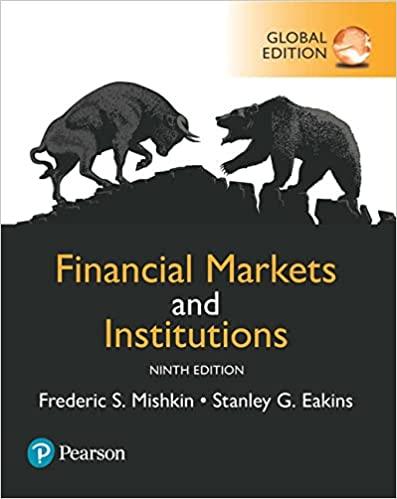Question
Financial economists generally believe that securities (stocks and bonds, etc.) are normally in equilibrium and are fairly priced, i.e., current prices reflect all available information,
Financial economists generally believe that securities (stocks and bonds, etc.) are normally in equilibrium and are "fairly priced", i.e., current prices reflect all available information, so investors cannot "beat the market" by looking at past trends of securities prices. Investors will be better off by investing in an index fund or choosing the buy and hold strategy (please see below link for one view). Please discuss this market efficiency issue: do you accept this efficient market hypothesis? Why or why not? You may refer to this discussion, with Gene Fama, on active investing -
When's the Right Time for Active Investing? Never:
https://www.thinkadvisor.com/2014/09/19/gene-fama-whens-the-right-time-for-active-investing-never/
Step by Step Solution
There are 3 Steps involved in it
Step: 1
The Efficient Market Hypothesis EMH is a cornerstone of financial economics but its not without its critics Heres a breakdown of the arguments for and ...
Get Instant Access to Expert-Tailored Solutions
See step-by-step solutions with expert insights and AI powered tools for academic success
Step: 2

Step: 3

Ace Your Homework with AI
Get the answers you need in no time with our AI-driven, step-by-step assistance
Get Started


